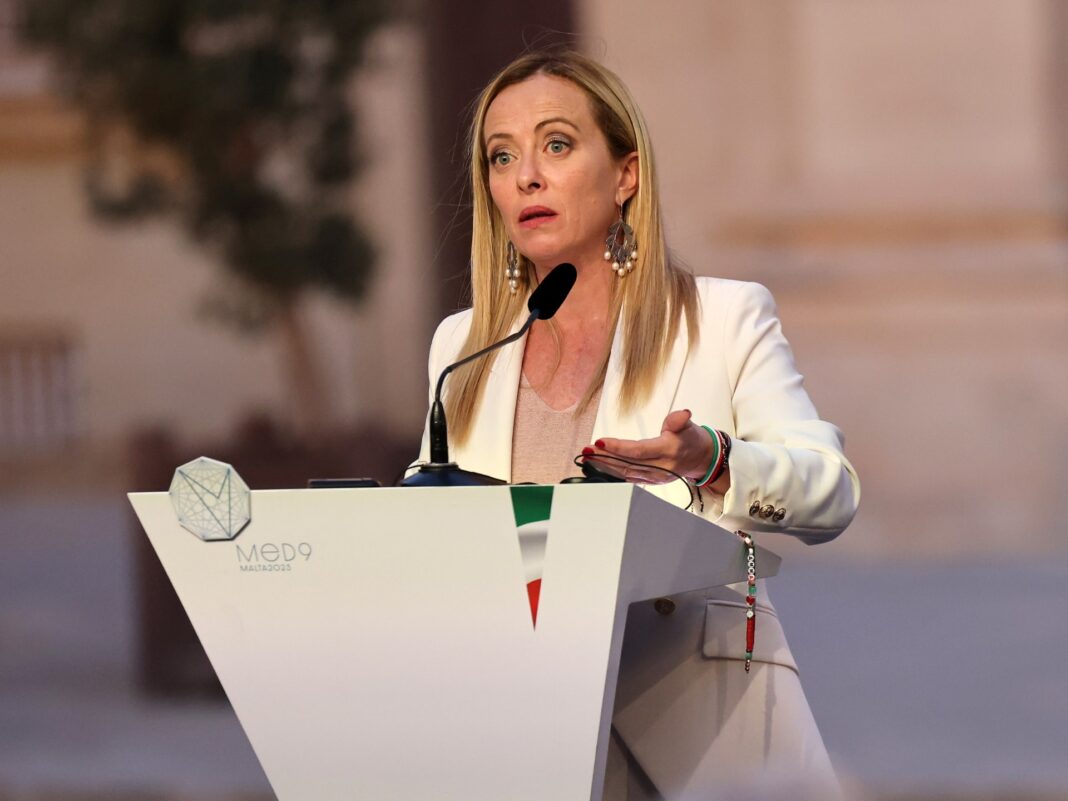The broadcaster RAI has denied censorship claims and said it is transforming into ‘a modern digital media company’.
Journalists at Italian public broadcaster RAI have staged a one-day strike, accusing Prime Minister Giorgia Meloni’s right-wing government of stifling free speech.
The journalists’ union Usigrai says the situation has worsened since Meloni took office in late 2022.
“We prefer to lose one or more days of pay than to lose our freedom,” Usigrai, the trade union representing around 1,600 of RAI’s 2,000 journalists, said in a video defending the 24-hour walkout on Monday.
Usigrai highlighted staffing issues, saying retiring employees are not being replaced while some journalists are left to languish on temporary contracts.
“We have always fought against every effort to gag freedom of speech, but I want to make it plain that what has been happening in recent months is unprecedented,” Vittorio di Trapani, a RAI journalist and head of the Italian National Press Federation (FNSI) told the news agency Reuters.
RAI dismissed the complaints, accusing unions of staging a politically motivated strike and saying that the company had not imposed any censorship on its staff.
Despite the strike, the main lunchtime news shows on RAI’s two main TV channels went on air much as normal, while its 24 news channel RAI24 carried largely pre-recorded programming.
As a public broadcaster whose top management is chosen by politicians, the independence of RAI – which has a primetime audience TV share of about 39 percent – has always been an issue of debate.
The arrival in power of Meloni, who formed a coalition with Matteo Salvini’s far-right League party and the late Silvio Berlusconi’s right-wing Forza Italia, has redoubled concerns.
Italy’s ranking in the World Press Freedom Index, drawn up by media watchdog Reporters Without Borders (RSF), fell this year to 46th place, five lower than in 2023, amid concerns over growing government influence on media and a recent slew of legal suits brought by politicians against journalists.
The question of censorship at the broadcaster hit the headlines last month when a monologue by writer Antonio Scurati, timed to coincide with commemorations marking the end of Fascist rule in 1943, was abruptly cancelled by RAI.
Scurati, who has written historical novels about Italian dictator Benito Mussolini, had used the piece to criticise Meloni’s party for not repudiating its post-Fascist roots.
RAI officials and Meloni denied censoring the monologue, and the prime minister subsequently published the tract on her own Facebook page.
In its own video statement, RAI management said there was “no censorship” and said it was trying to transform the broadcaster into a “modern digital media company”.







